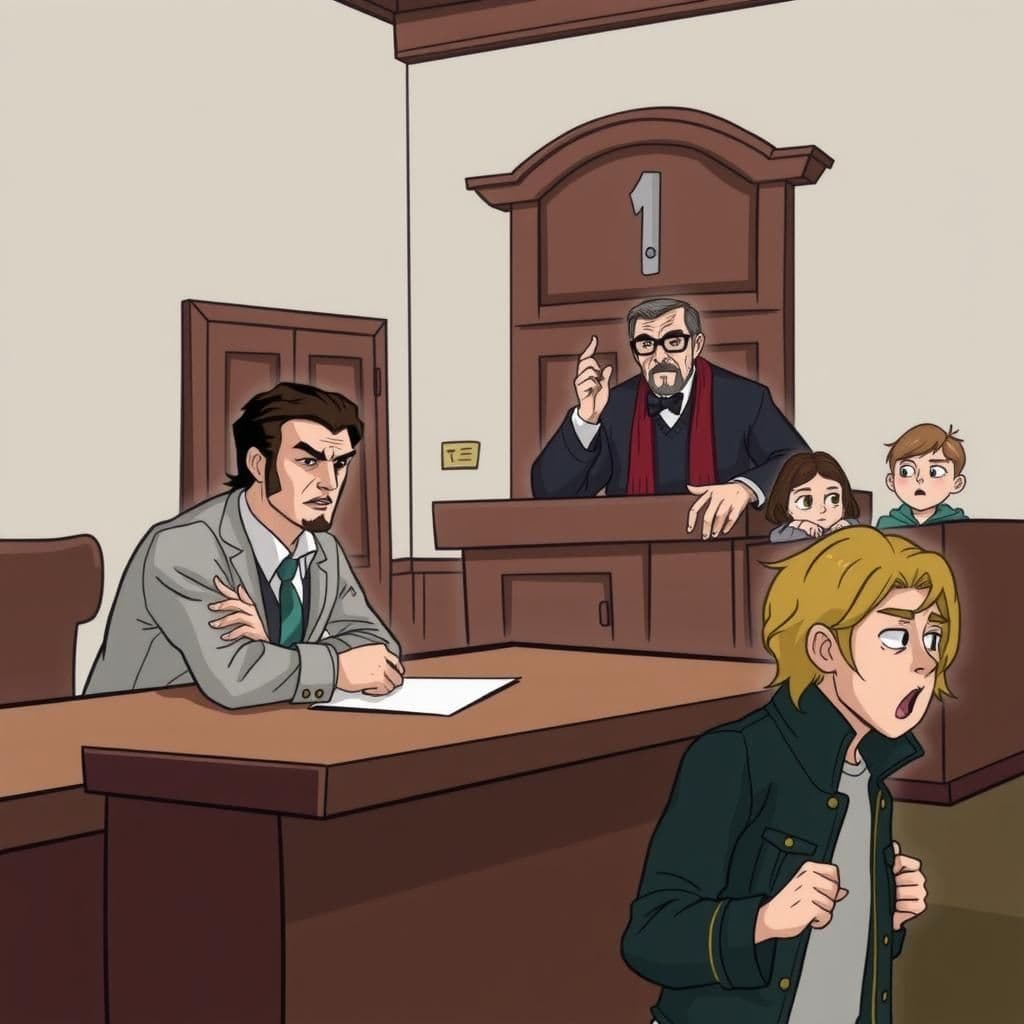The Justice and His Accuser

Story Summary
In "The Justice and His Accuser," a Supreme Court Justice in Patagascar faces allegations of securing his position through fraud, sparking a thought-provoking moral debate. While the Justice dismisses the significance of his appointment's legitimacy, the Accuser emphasizes that the Justice's misconduct on the Bench is far more critical, illustrating a classic moral lesson about the importance of integrity in leadership. This life-changing story encourages reflection on how power should be wielded responsibly, making it a compelling addition to inspirational short stories with moral lessons.
Click to reveal the moral of the story
The true measure of a person's character lies not in how they attain power, but in how they wield it once they have it.
Historical Context
This story reflects themes of corruption and moral integrity within the judicial system, reminiscent of classical tales that critique authority figures, such as Aesop's fables or the works of Voltaire. The setting in Madagascar evokes the island's rich colonial history and the complexities of its legal traditions, which have often been shaped by external influences and internal struggles for justice. The dialogue captures a timeless tension between the means of acquiring power and the ethical use of that power, a motif found in various cultures' literature and folklore.
Our Editors Opinion
This story highlights the enduring principle that the means of obtaining power may be overshadowed by the manner in which that power is exercised, a lesson relevant in modern life where ethical leadership is crucial. For instance, a corporate executive may rise to their position through questionable practices, but if they then implement policies that harm employees or promote a toxic culture, their initial ascent becomes irrelevant, and their true character is revealed through their actions.
You May Also Like

The Bull the Lioness and the Wild Boar Hunter
In this impactful moral story, a bull accidentally kills a lioness's cub, prompting her to mourn deeply. A wild boar hunter, observing her sorrow, points out that many men also grieve for their lost children due to her predatory nature. This short moral tale serves as a reminder of the cycle of loss and the consequences of one's actions, making it a poignant lesson for class 7 students.

The Tried Assassin
In "The Tried Assassin," a courtroom drama unfolds as an assassin stands trial in a New England court. His counsel argues for dismissal based on a previous acquittal in California, invoking the principle of "once in jeopardy." However, the judge denies the motion, stating that an assassin is not considered to be in jeopardy when tried in California, allowing the trial to proceed—a reflection of the complexities found in popular moral stories and animal stories with moral lessons.

The Patriot and the Banker
In "The Patriot and the Banker," a former politician, having grown rich from questionable gains, tries to open a bank account but is confronted by an Honest Banker who insists he must repay the money he stole from the government first. Realizing the bank's share of the loss is minimal, the Patriot deposits just a dollar, humorously illustrating the lessons learned from stories about accountability and the often feeble attempts at restitution by those who prioritize wealth over integrity. This funny story with a moral serves as a big moral tale, teaching valuable lessons that can resonate with kids and adults alike.
Other names for this story
Judgment in Question, The Accuser's Dilemma, Justice Under Fire, Truth and Deceit, The Bench's Betrayal, Accusations of a Justice, The Cost of Power, Justice vs. Integrity
Did You Know?
This story highlights the theme of moral integrity versus the means of obtaining power, suggesting that the misuse of authority often overshadows the legitimacy of one's ascent to it, challenging the notion that the end justifies the means.
Subscribe to Daily Stories
Get a new moral story in your inbox every day.